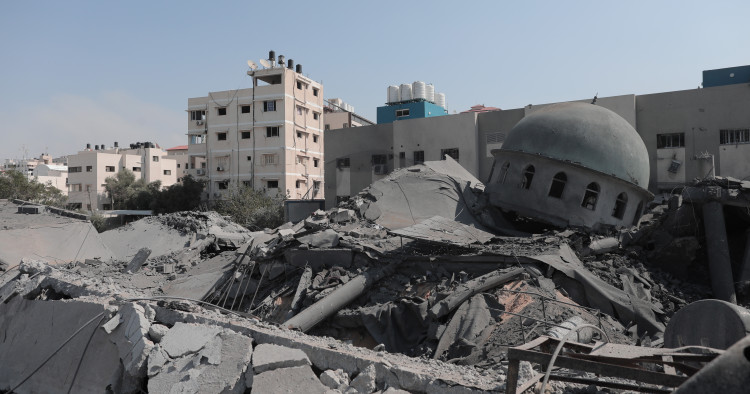The scale and brutality of Hamas's grisly attack on Israel last Saturday, in which at least 1,300 Israeli men, women, and children were brutally murdered, has understandably triggered a massive outpouring of sympathy and solidarity with Israel from around the world, particularly in the United States, Europe and other western nations.
Meanwhile, Palestinians in Gaza are also dying in disturbingly large numbers. In response to the mass terror attack, Israel launched a massive aerial bombardment of Gaza, the most devastating the besieged enclave has ever seen. Already, 1,799 Palestinians have been killed, including 583 children, and 6,000 injured. Entire neighborhoods have been leveled, leaving over 423,000 internally displaced.
And yet, there has been no similar outpouring of sympathy for Palestinians. In fact, the U.S. and European powers have resisted formal calls for a ceasefire or even expressions of concern for Palestinian civilians, effectively giving Israel a greenlight to conduct its military operation as it sees fit. Even Israel's decision to cut all water, food, fuel and medical supplies to Gaza—considered a grave war crime under international law and something western officials have elsewhere decried as "acts of pure terror"—elicited no protests from western governments and even occasional defenses.
Even public displays of sympathy or solidarity with Palestinian victims are considered beyond the pale, widely condemned by elected U.S. officials as "cold-hearted" or even pro-terrorist. In the zero-sum environment of U.S. politics, only Israeli victims are worthy of being acknowledged.
The message is clear—the lives, suffering and humanity of Palestinians are less worthy than the lives, suffering and humanity of Israelis. This basic inability of U.S. and other western officials to express empathy with Palestinians or acknowledge their suffering is both alarming and dangerous given what Israel is capable of and already carrying out on the ground.
Photo by Momen Faiz/NurPhoto via Getty Images
The Middle East Institute (MEI) is an independent, non-partisan, non-for-profit, educational organization. It does not engage in advocacy and its scholars’ opinions are their own. MEI welcomes financial donations, but retains sole editorial control over its work and its publications reflect only the authors’ views. For a listing of MEI donors, please click here.













